
There's no question that your appearance will be altered by having a missing tooth. Regardless of the reason for your tooth loss, it can trigger several undesirable issues in your mouth. For instance, the alignment of your teeth will probably change because teeth will shift over time, and they will have a tendency to lean toward the gap where the missing tooth is.
Losing even one tooth can have a major impact on your overall oral health and your self-confidence as well. It can impact your speech, it can degrade your ability to bite and chew, it can have an impact on the integrity of your jaw bone and your facial features, and it can eventually lead to a number of misaligned teeth. Fortunately, there are a number of options you can choose from in order to replace your missing tooth, and to help restore the beautiful smile you once had.
It may help your decision to read through the information below, and if you're still undecided, you can consult with your dental professional at Zircteeth. This dental agency has locations in Texas, Massachusetts, and New Hampshire, so chances are you live within driving distance to a clinic where you can receive treatment.
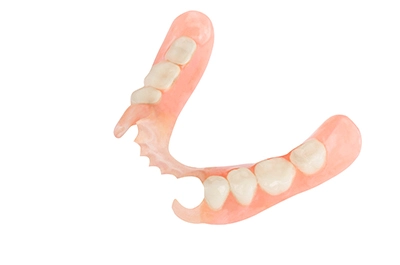
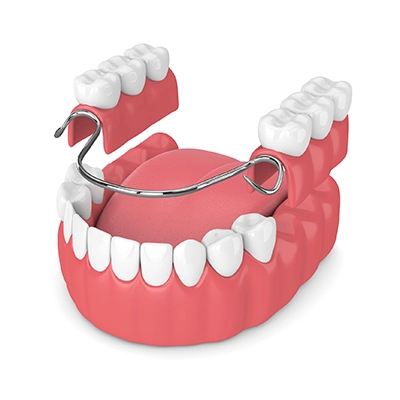
One big benefit of removable partial dentures is that you can add additional teeth directly on to your partial denture if you lose any other teeth in the near future. This can save you considerable time and money, because it's only adding onto an existing dental appliance, rather than creating an entirely new one. In fact, removable partial dentures tend to be one of the least expensive alternatives for any kind of tooth replacement. If it turns out that you need to repair or replace your removable partial denture, this will carry a relatively inexpensive cost.
They are also very easy to install, since they only require adding metal clasps on to the partial denture. On the downside of these dental appliances, it sometimes happens that they can be a bit uncomfortable for the wearer. You'll also have to remove your partial dentures and have them cleaned every day before going to bed at night. Appearance-wise, partial dentures are a little more obvious than dental implants, and they don't have that same natural look and feel. That's because the metal clasps are generally visible, and can be seen people who you are in company with.
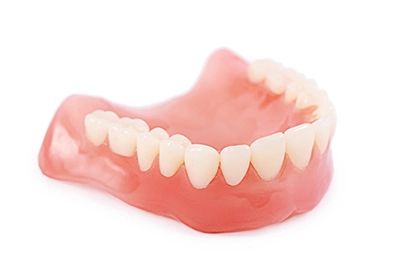
They also provide adequate support for lips and cheek muscles, and they help restore or maintain facial features, thereby providing a more youthful appearance to the patient. Complete dentures usually help make it easier to bite, chew, eat, and they also help to improve your speech. You can count on it being a relatively affordable and fast treatment option when you decide to go with complete dentures. You'll also be able to select from a wide variety of colors, shapes, and sizes, while also matching the natural look of your teeth and gums closely. If it ever happens that your jawbone undergoes subtle changes, your dentist will be able to realign and readjust your complete denture so as to stay in sync with your oral environment.
One of the biggest disadvantages of using complete dentures is that they can become ill-fitting over time, especially if it happens that your jawbone changes shape. You'll also have to remove your dentures at night, so that your gums can recover from the rubbing that takes place during the day. You also have to give them special care to put them in a cleaning solution through the night, and brush them in the morning, so they're ready for a full day's work.
It often takes several adjustments by your dentist in order to make complete dentures comfortable in your mouth. This generally will require several visits to your dentist's office, because you'll need time to experiment with the adjustment most recently installed. It's also possible that you'll need adhesives to keep your dentures in place. Even with a good adhesive, it's possible that your complete dentures will slip around or rub inside your mouth, thereby causing embarrassment when eating or talking.
It's even possible for your dentures to break if you drop them, depending on what materials they're made of, and whether they're prone to breakage. People who choose complete dentures as an option are generally looking for a low-cost alternative for replacing an entire arch of teeth. If you're not a good candidate for dental implants, or if you don't want to undergo implant surgery, having complete dentures installed may be the way to go.
When you have multiple missing teeth all in a row, one very good option is an implant-supported bridge. It's generally a very lengthy and unnecessary process to have to replace each tooth with a dental implant, and when your missing teeth are all in a row, you'll have this option. By using an implant supported bridge, it's only necessary to secure the teeth at either end, using implants to anchor them in place. All the teeth in between the two end teeth are held in place without the need for any installation of implants.
In fact, the biggest advantage of using an implant-supported bridge is that it can be very economical when you need to replace a number of missing teeth all in a row. Another benefit of using an implant-supported bridge is that this is just as effective as a dental implant, because actual implants are anchoring the teeth on either end. You'll also get the same natural look and feel when using an implant-supported bridge, as you would with ordinary implants.
One of the downsides to using implants like these is that they can only be used in situations where there are several teeth in a row missing from your mouth. You should also take into account that for the most part, implant-supported bridges do not provide a permanent solution, and at some point, they will have to be replaced. One more downside to installing implant-supported bridges is that they will require several visits to your dentist's office before they can be completely installed.
Tooth supported bridges make use of your natural teeth to support the installation of a new bridge, as an alternative to installing two implants in your mouth. A crown will then be placed on the teeth which are adjacent to the missing ones, and then the crowns will be cemented into place. It requires several visits to your dentist in order to complete this procedure, but it's a good option which is worth the effort. When you have a tooth-supported bridge installed, it has the same realistic look and feel of any other type of dental implant.
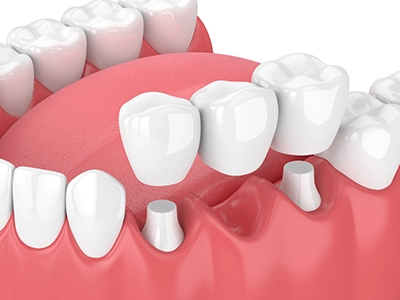
One of the drawbacks to tooth-supported bridges is that the adjacent teeth which receive the crowns have to be filed down so that the crown can fit over it. When this filing occurs, it increases the chances for infection to occur, even if this is not a common occurrence. If the bridge isn't properly fitted in the first place, it's entirely possible that adjacent teeth can be damaged with the passage of time. It's also possible for food particles to work their way under the bridge and make dental hygiene more problematic. Anyone who isn't quite thorough with their cleaning habits might have a greater risk of infection, and might eventually sustain some level of bone loss.
Dental implants have become one of most popular and one of those common kinds of tooth replacement in all of dentistry. One of the reasons for this is their extremely high success rate, which nationally hovers around 97%. That means it's a very reliable method of tooth replacement, and it has the added bonus of looking and feeling very much like your original teeth. Dental implants can provide a permanent solution whether you're looking to replace one teeth, a few teeth, or an entire arch of teeth, top or bottom.
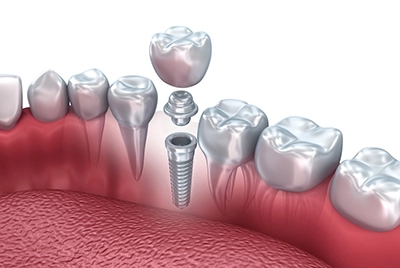
Dental implants actually take the place of your tooth root, and that's why it's such a good anchor when properly installed in the jawbone. As the healing takes place, the titanium post will actually fuse with your jawbone and become part of it. Once the post has been fully fused with the jawbone, it will be possible to place a dental crown on top of it, and that will be secured in place. In terms of benefits, the first one is that this is one of the most successful of all available options for replacing any number of missing teeth.
Another benefit is that they provide a very natural look and feel, and there is no loss of functionality when compared to your original teeth. It's also not necessary to involve any of the neighboring teeth when implants are installed, so these can remain completely intact and untouched. Lastly, dental implants provide a permanent replacement option, and once they've been installed, they don't really even need to be checked up on by your dentist.
The one major downside to having dental implants installed is that they tend to be one of the most expensive replacement options. Depending on where you live in the country and who your dental professional is, you can expect to pay somewhere between $3,000 and $6,000 for one implant, including the artificial crown.
Installing dental implants is somewhat of an invasive procedure, because it does call for surgery to implement the titanium post into the jawbone. There is a considerable healing time necessary after an implant has been installed, and this may seem undesirable to some patients who would like a more expeditious solution. Since there's a surgery involved, it is entirely possible, although quite unlikely, that infection can creep into the process and cause problems for a patient.
